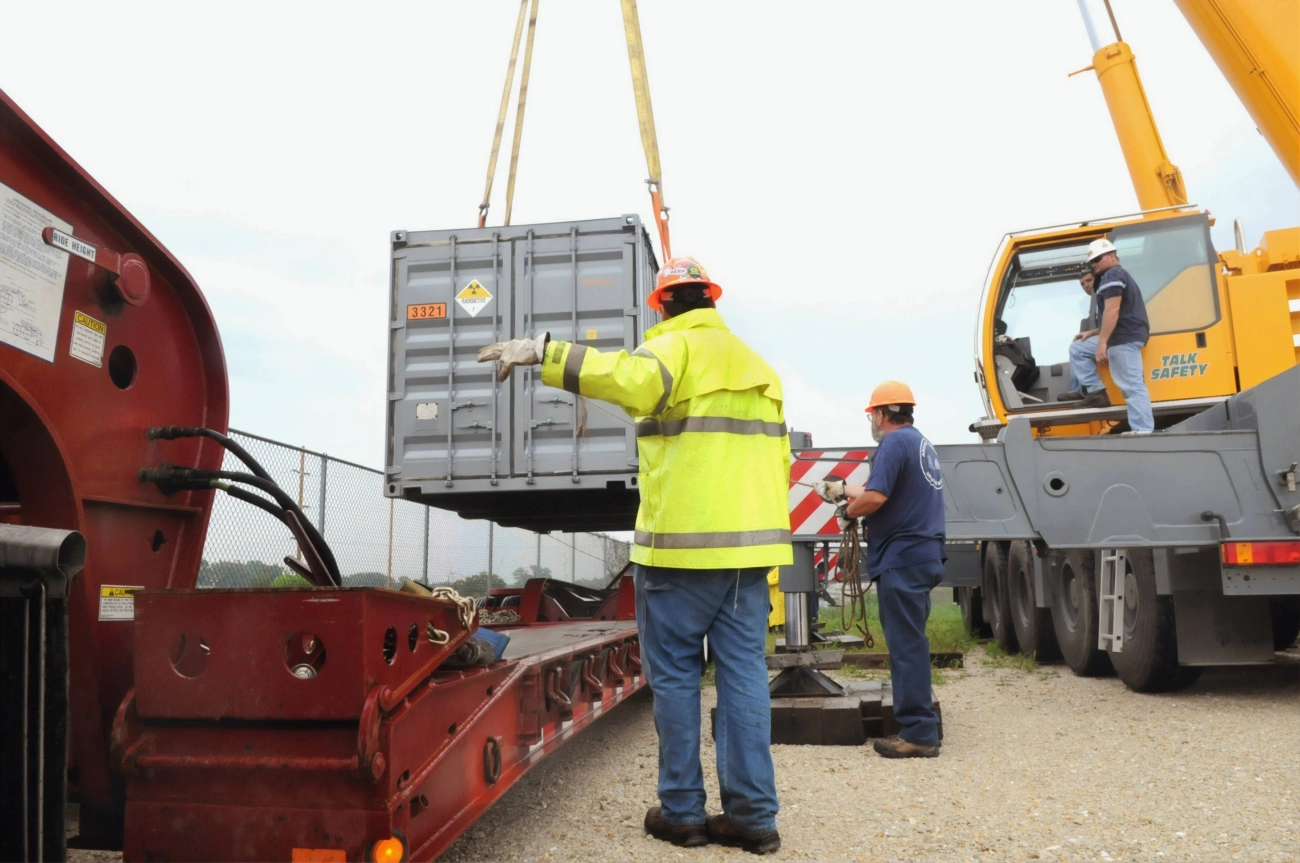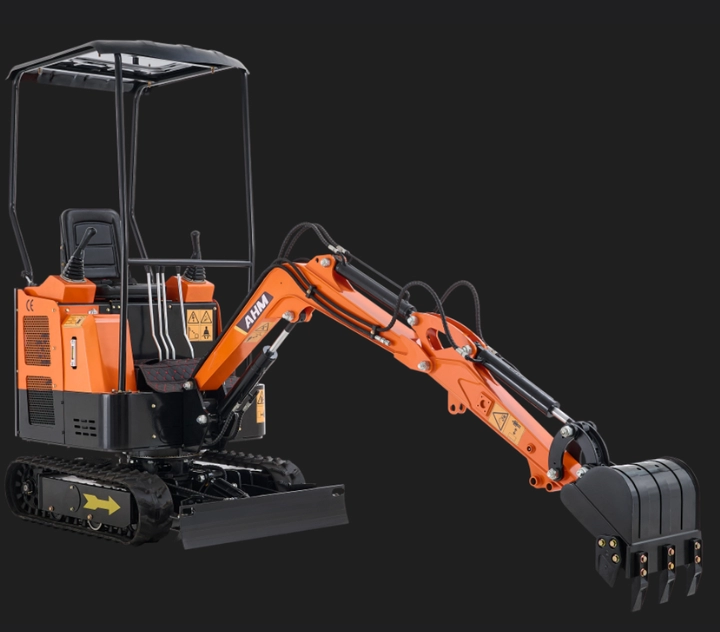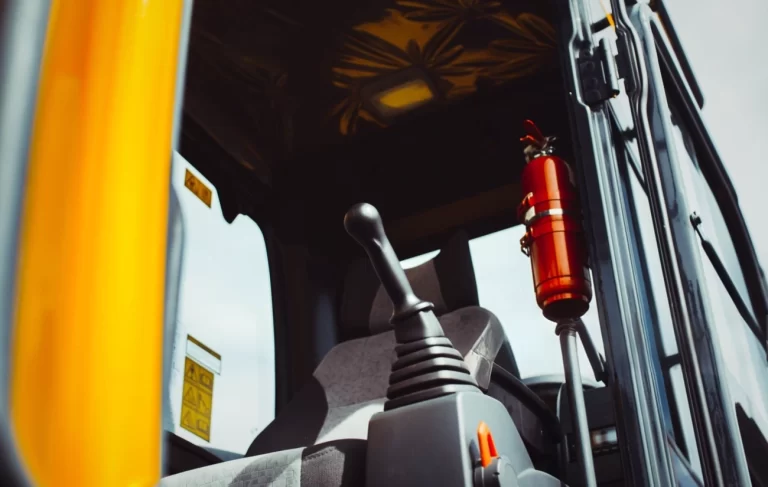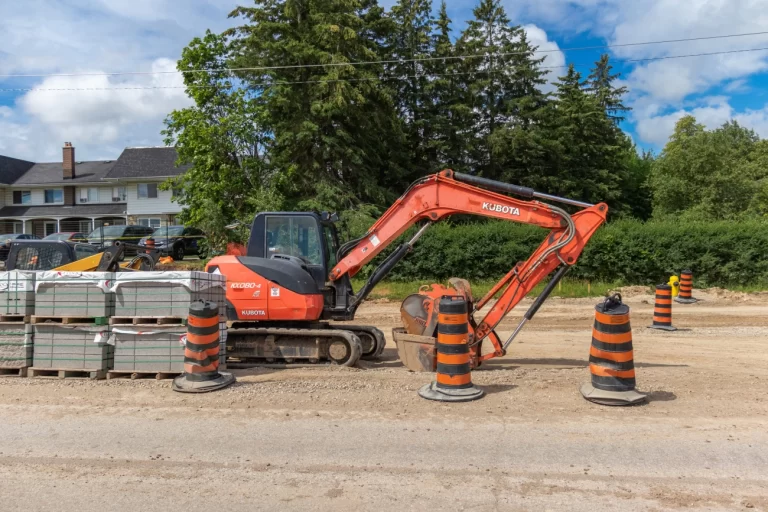-
Shandong Province, China

How to Become a Excavator Operator: A Complete Career Guide and Equipment Recommendations
Job Description and Responsibilities of Excavator Operator
Daily Tasks and Responsibilities of Excavator Operator
Excavator operators are primarily responsible for operating various excavation equipment to complete earthwork, excavation, handling, demolition, and other related construction tasks.Daily work includes:
- Operating the excavator for on-site operations such as digging, backfilling, and trenching
- Operating precisely according to construction drawings and engineering instructions to ensure work quality
- Regularly check the mechanical condition of the excavator and perform simple maintenance
- Adhere to on-site safety regulations to ensure the safety of yourself and others
- Communicate and coordinate with the engineering team to ensure smooth construction progress
Types of projects and industries where excavators are used
Excavators are indispensable heavy equipment in construction projects, with a wide range of applications covering various industries and types of projects, such as:
- Construction industry: Foundation excavation and foundation leveling for residential and commercial buildings
- Road construction: Road excavation, pipeline laying, and roadbed preparation
- Environmental Engineering: Cleaning polluted soil, treating rivers and drainage systems
- Mining and Quarrying: Soil and rock excavation and handling operations
- Demolition Engineering: Using excavators to demolish old buildings or structures
Different sizes and types of engineering projects use different models and weight classes of excavators, from small Hua Yang Machinery's range of small excavators from 0.8 tons to 2.0 tons, applied to large heavy machinery.
Core skills and physical requirements for excavator operation
As an excavator operator, in addition to having good equipment operation skills, you must also have the following key abilities and physical conditions:
- Technical proficiency: Accurately master the operating lever, pedals and rotation control of the excavator to improve work efficiency
- Hand-eye coordination: Able to precisely control mechanical movements to complete delicate excavation and earthmoving tasks
- Physical requirements: Requires prolonged sitting operation, tolerating outdoor environments and various climate changes
- Safety awareness: Strong occupational safety concept, always pay attention to on-site hazards and comply with operating standards
- Problem-solving ability: Able to react quickly and make judgments when equipment fails
- Good communication: Cooperate with site supervisors and other operators to ensure error-free work and no conflicts
Excavator operation is not only a technical job, but also a profession that combines physical and mental strength. Only by combining solid operating skills, good safety habits, and physical fitness can one be competent in the ever-changing and demanding construction site.
Qualifications and Conditions to Become an Excavator Operator
Want to become a professionalExcavator Operator, you must first understand the basic qualifications and requirements, which is the first step into this industry.
Basic Education and Age Requirements
- Minimum Education LevelUsually a junior high school or high school diploma, some jobs require relevant vocational training certificates or tutoring experience.
- Legal Age RestrictionsGenerally, it is for those over 18 years old who meet workplace safety regulations. United States safety regulations require adults to operate heavy machinery.
Physical fitness and safety standards
- Operating an excavator is a job that combines physical strength and skill, requiringgood physical condition, especially vision, hearing, and reaction abilities must meet standards.
- Operators must adhere tostrict safety regulations, such as wearing hard hats, safety glasses, and avoiding driving while fatigued.
- Construction site work environments are complex, requiring operators to have a high degree of safety awareness to prevent accidents.
Background checks and relevant certifications
- Most employers will conductbackground checksto ensure there are no major violations or safety accident records, and to ensure a safe working environment.
- According to United States and international standards, some construction sites requireExcavator Operator Certification(such as a skill evaluation certificate issued by the United States Department of Labor).
- If you plan to develop in the international market, consider obtainingOSHA、NCCERand other internationally recognized certifications to enhance competitiveness.
Mastering the above conditions is key to entering a career in excavator operation. Adequate preparation ensures safe and efficient task completion in future work. If you want to learn about models suitable for beginners, you can refer to our 【Small Excavator Series】 provided.https://hyexcavator.com.tw/fi/product/small-excavator-12/), to help you get started quickly.
Excavator Operator Training and Certification Path
Becoming qualifiedExcavator Operator, Accept professionalTraining CourseRelated to obtainingCertificationIs an indispensable step. This will not only allow you to master the correct operating skills, but also protect your personal safety at work and meet regulatory requirements.
Recommended excavator operation courses and training programs
In the United States, many vocational training centers and technical schools offerHeavy machinery operation training courses, covering everything from basic operation and maintenance to safe operating procedures. In addition, there are also industry-organizedExcavator apprenticeship program, allowing beginners to learn from practical experience on site and quickly accumulate experience.
Common training courses include:
- Basic excavator operation skills
- Mechanical maintenance and simple troubleshooting
- Work site safety regulations and environmental protection
- Exclusive operation training for Huayang Machinery small excavators
Choosing courses with practical operation components can greatly improve learning efficiency and work readiness.
Local and international certification information
Currently, there is no unified national excavator operator certification in Taiwan, but many industry-recognized qualifications include:
- Ministry of Labor Technician Certificate(Heavy Machinery Operator Category)
- Safety and Health Education and Training Certificate
- International safety certifications such as OSHA(United States Occupational Safety and Health Administration Standard)
- NCCER Heavy Equipment Operator Certificate(United States Professional Certification)
Having these certifications can enhance your competitiveness in the recruitment market, especially since large construction or multinational engineering projects often require relevant qualifications.
How to choose a suitable training institution or course
When selecting courses, it is recommended to pay attention to the following points:
- Whether there are professional teachers and rich teaching experience
- Whether the course content covers practical operation and safety regulations
- Whether there is preparation for certification exams that meet industry standards
- Course evaluation and student feedback
- Whether you can access commonly used excavator models on the market, such asSmall excavators of models 8 to 20 produced by Huayang Machinery
Refer to the model product page through the official website, for example "Small Excavator Series", to understand the mechanical characteristics and help choose the most suitable training machine.
Comparison of the advantages and disadvantages of practical training and formal courses
| Item | Practical training (on-the-job) | Formal courses |
|---|---|---|
| Learning environment | Directly on the construction site or construction site, rich in practical experience | Classroom theory combined with simulation operations |
| Mastery of technology | Quickly adapt to actual work tools and environment | Systematic learning, solid foundation |
| Safety concept | On-site safety procedures and emergency response learning | Detailed explanation of laws, regulations and safety measures |
| Certificate acquisition | Fewer formal certifications | Able to fully prepare for various certification exams |
| Flexibility | Can learn at any time and adjust progress according to work | Fixed course time, with a more rigorous learning plan |
The ideal way isCombine the advantages of both, first lay a solid foundation in formal courses, and then accumulate experience through practical apprenticeships or work to truly become a qualified and safe excavator operator.
Through comprehensive training and certification programs, you can not only enhance your operational skills but also establish a firm foothold in the United States construction and engineering market. To learn more about machine selection and training information, it is recommended to visit the official website of the machinery manufacturer or contact customer service directly.Contact Us。
Hands-on practical experience and operational practice
Accumulate experience through apprenticeships and entry-level jobs
Become a qualified excavator operator,Practical experience is essential. Many people learn mechanical control skills and on-site response capabilities through hands-on operation in excavator apprenticeship programs or entry-level jobs. These work environments usually provide valuable communication and on-site experience, allowing you to understand various construction site conditions and applications.
For the United States market, especially with more small and medium-sized projects, choose likeHua Yang Machinery's mini excavators(0.8 tons to 2.0 tons)are very suitable as practice and learning machines because they are flexible to operate and beginner-friendly.
Excavator Safety Regulations and Operating Procedures
In the United States, safe operation must never be ignored. The following key points must be strictly observed:
- Wear safety equipmentSuch as safety helmets, goggles, reflective clothing, etc.
- Before operationCheck the mechanical conditionCheck that the fuel, hydraulic system, and safety devices are working properly.
- Maintain during excavation.Be aware of your surroundings, avoid collisions and dangers
- Strictly follow construction site safety regulations and participate in regular safety training
Use Huayang machinery and equipment to enhance skills
Huayang Machinery's excavators have a good reputation in the United States market and are suitable for apprentices and professional operators. Their design meets the needs of United States construction sites, with a compact body but sufficient power, suitable for various small and medium-sized construction and gardening projects. Practicing with these devices helps:
- Familiar withMultiple control modes and functions
- Practice operating skills in different terrains and soil types
- Establish mechanical maintenance and minor troubleshooting skills
In summary, only continuous practical operation and learning of safety standards can make you a qualified and efficientExcavator OperatorBy using apprenticeships and choosing performance-stable Huayang excavators, you can effectively improve your workplace competitiveness.
Essential skills to become an excavator operator
As a professionalExcavator OperatorHaving solid skills not only ensures work efficiency, but also ensures on-site safety and the normal operation of equipment. Here are some core competencies that successful excavator operators must possess:
Technical operation skills
- Proficient in different models of excavatorsOperating skillsincluding basic operations such as digging, loading, and transporting.
- Understand how to switch operating modes to adapt to different working environments and task requirements.
- Make good use of the control system and hydraulic system to ensure the accuracy and stability of movements.
Mechanical knowledge and troubleshooting
- Possessing basic knowledge of mechanical structure and operating principles helps in judging the mechanical condition.
- Be able to perform daily maintenance and inspections, such as oil level checks, filter replacements, etc.
- Master simple troubleshooting methods to ensure quick handling in emergencies and reduce downtime.
On-site communication and teamwork
- Excavator operation usually takes place in a collaborative construction site environment, and goodCommunication skillsIndispensable.
- Be able to clearly receive and execute instructions, and report work progress and site conditions at any time.
- Effectively cooperate with command and dispatch to ensure smooth project flow.
Safety and environmental awareness
- Strictly abide by the construction site'sSafety regulationsto avoid accidents.
- Pay attention to the operating environment to avoid harm to surrounding equipment and personnel.
- Understand environmental protection requirements to reduce the impact of construction on land and ecology.
Having the above skills can not only improve personal performance, but also increase job competitiveness. For the engineering market in the United States, which pays special attention to safety standards and efficiency, these abilities are the key to becoming a first-class excavator operator. If you want to improve further, you can participate inExcavator operation training coursesorInternship programto accumulate more experience and professional knowledge.
Career advancement opportunities for excavator operators
In Taiwan, becoming an excavator operator is just the beginning of your career. With the accumulation of experience and the improvement of skills, you can expand a variety of career paths to achieve the dual growth of position and salary.
From operator to supervisor or heavy equipment manager
-
Site Supervisor
With good operational performance and management skills, you have the opportunity to be promoted to site supervisor, responsible for coordinating work progress and team management.
-
Heavy Equipment Manager
After further accumulating management experience, you can become a heavy equipment manager, leading machine scheduling, maintenance plans and safety supervision. These positions usually have higher salaries and broader work responsibilities.
Specialized Direction Options
-
Professional excavation
In-depth study of various earthwork projects to improve operational accuracy and efficiency, and become an expert in earthwork engineering.
-
Demolition Engineering
Mastering demolition techniques and safety regulations, focusing on building demolition or waste removal, is a niche market with growing demand.
-
Land leveling and grading
Understanding land preparation details, focusing on land planning and preparation, serving agriculture or early construction preparation.
Continuous learning and certification upgrade
-
Participate in excavator operator training courses
Continue to learn the latest operating techniques and safety regulations, such asNCCER certification、OSHA safety trainingetc., which helps increase professional competitiveness.
-
Obtain more advanced certifications
For example, obtain qualification certificates for operating large excavators or multiple types of heavy equipment to enhance the qualifications for undertaking more complex projects.
-
Skills diversification
Learn crane or other heavy machinery operations across fields to make yourself more flexible and valuable in the market.
Career growth is not only about salary increase, but also about the transformation of skills and responsibilities. ThroughContinuously accumulate practical experience、Professional trainingWithLicense certification, excavator operators in Taiwan can gradually become heavy equipment experts with comprehensive technical and strong management skills. This career development path is crucial for those who want to develop steadily in the construction, civil engineering, or engineering market in the long term.
Excavator Operator Salary Expectations and Career Prospects
Average Salary and Regional Differences
Excavator operator salaries vary by region, experience, and employer type. In the United States, the average entry-level excavator operator's monthly salary is approximatelyAround 30,000 to 40,000 New Taiwan dollarsThose with experience or professional certifications can see their salaries increase to40,000 to over 50,000If working for a large construction company or in the public sector, the salary level will be more stable and the benefits will be better.
Employment Growth and Future Trends
As infrastructure in the United States continues to grow, and the demand for renovation of old pipelines and urban renewal increases, the employment demand for excavator operators remains stable or evenshowing a growth trendIn particular, qualified operators who can operate multiple models can find stable job opportunities in industries such as construction sites, construction, and engineering contracting.
Employer Type and Recruitment Direction
Common recruitment sources for excavator operators include:
- Construction engineering company: Covers residential, commercial buildings and public works.
- Construction and construction company: Large-scale infrastructure and civil engineering projects.
- Municipal and transportation authorities: Road maintenance and pipeline reconstruction projects.
- Rental equipment company: Manages and operates excavation equipment leased to customers.
- Private industry and agricultureTerrain transformation, small construction projects.
In summary, excavator operators in the United StatesSalaries are competitiveAnd with stable market demand growth, the career development path is clear. For those who aspire to become professional excavator operators, continuously improving skills and obtaining appropriate certifications will be the key to increasing salaries and occupational safety.
Excavator Equipment Selection Tips The Importance of Excavator Equipment Selection
Choosing the right excavator equipment is crucial for work efficiency and safety. Different working environments and project scales require different models and specifications of machinery. Choosing the right equipment can not only reduce the difficulty of operation, but also effectively save time and costs. Especially for novices or apprentices, choosing an excavator that is easy to operate and meets training needs will help speed up the learning process and improve practical skills.
Huayang Machinery Small Excavator Overview
Huayang Machinery offers a variety of small excavators, ranging from 0.8 tons to 2.0 tons (including 08, 12, 15, 17, 17H, and 20 models), suitable for beginners and professional operators. These small excavators are especially popular in the United States market because:
- Compact and flexible: Suitable for diverse and space-constrained construction site operations in the United States.
- Easy and stable operation: Designed to meet the needs of novice training and high-efficiency construction.
- Easy to maintain: Standardized parts and design make daily maintenance and repairs simple.
- Energy saving and emission reduction: Focus on environmental protection, fuel saving and reduced carbon emissions, in compliance with local regulations.
If you want to know more model details or consider purchasing, we recommend referring toHuayang Machinery Mini Excavator Product Pageto understand different parameters and applicable scope.
Excavator Maintenance and Safety Precautions
Choosing the right excavator is only the first step; regular maintenance and safe operation are even more important:
- Regularly check the hydraulic system and oilto ensure stable output and avoid malfunctions.
- Lubrication and cleaningto keep moving parts smooth and prevent rust or wear.
- Check tracks and tires: Ensure stable movement and prevent accidents during operation.
- Safety operation training: Strictly adhere to safety regulations to reduce accidents.
- On-site environment assessment: Confirm ground structure and obstacles to ensure operational safety.
Especially for beginners usingsmall excavatorsWhen operating, be sure to familiarize yourself with the operation manual and wear the necessary safety protective equipment.
Summary
Choosing the right mini excavator for your work needs can greatly improve construction efficiency and safety. Huayang Machinery's mini excavators are designed to take into account the learning characteristics of novices and the requirements of professional construction, and are a reliable choice for heavy equipment supply in the United States market. With regular maintenance and strict safety management, it can ensure the smooth and safe operation of each operation and lay a solid foundation for your excavator operation career.




